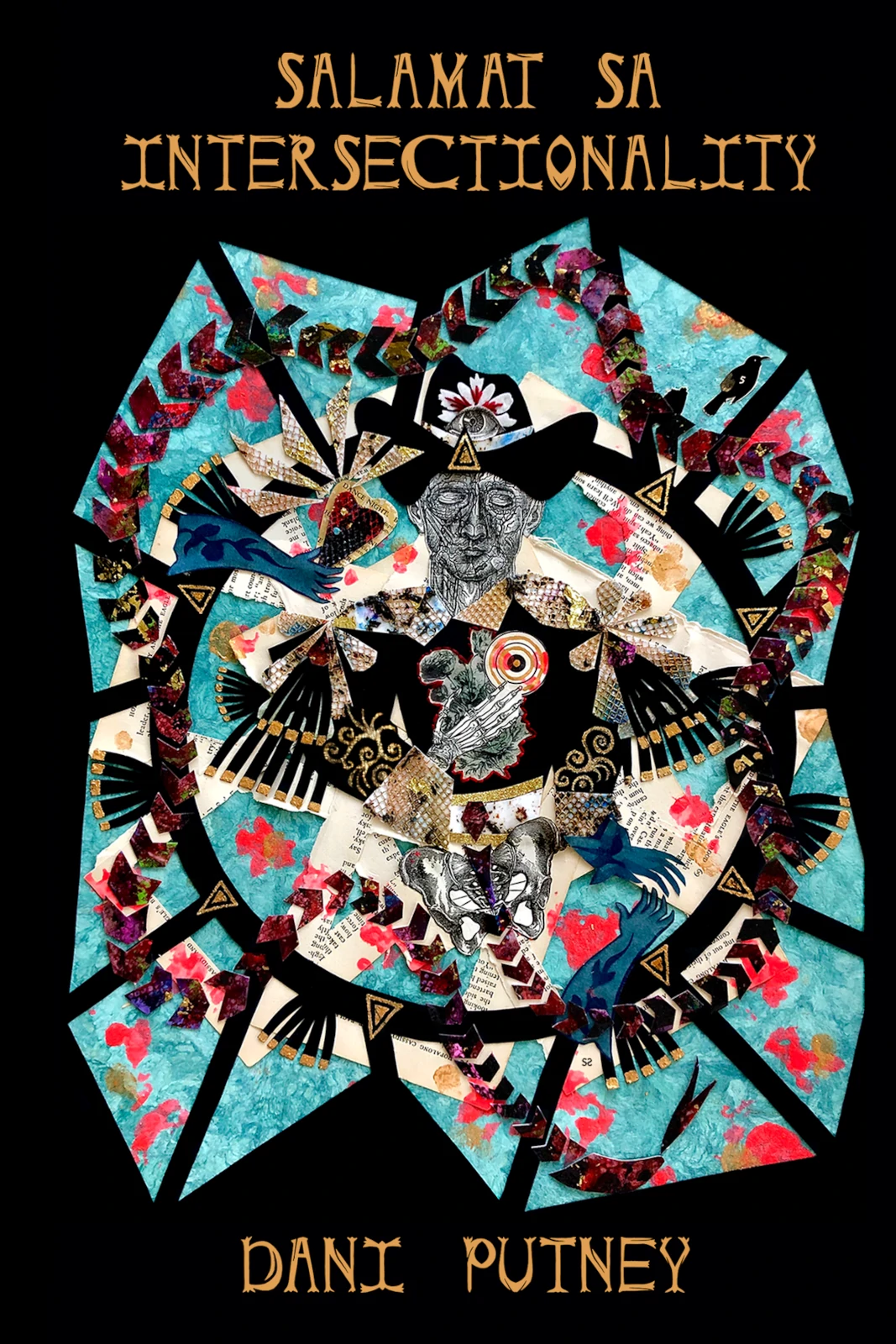
A Review of Salamat sa Intersectionality by Dani Putney
Words By Miki Schumacher
Published May 18, 2021 by Okay Donkey Press
Dani Putney’s debut poetry collection Salamat sa Intersectionality is a dynamic lyrical exploration of identity and evolution. Reading these poems felt like walking through Putney’s life—in each section, they create meaningful narratives of change and growth that kept me enthralled. Their poetry is both playful and intensely contemplative, and poems like “Sylvia Plath and Virginia Woolf Talk on My Thighs” are beautiful analyses of gender and language. As a nonbinary, mixed-race Filipinx, and neurodivergent individual, Dani Putney skillfully brings in different aspects of their identity to show the world from their perspective. In doing so, they create a radical understanding of self through poetry.
The collection takes the form of a poetic triptych, where each panel captures different aspects of Putney’s evolution: “Youthful Absolution,” “Salted Pores,” and “Taken Root.” In “Youthful Absolution,” the reader sees how Putney explores gender as well as their relationship with their parents. For instance, the poem “To Judith Butler” questions the boundaries of gender, while “My Mom Was a Picture Bride” shows the complex meaning of Putney wearing their mother’s cheongsam. Ancestry is a strong theme in this section, and I enjoyed seeing the different directions in which Putney would take the idea of youth.
The following section, “Salted Pores,” is lush with poems of queer sexuality. In these, Putney describes various physical encounters and examines the depths of desire. Poems like “Berm” portray the familiar embrace of a lover, and “Hyacinth” shows an ephemeral impression of attraction. The relationships in these poems are complex, with Putney showing both loving partners and layered conflict. There are cycles of tension and release, which create a growing anticipation as the poems advance toward the next movement.
Finally, “Taken Root” establishes how Putney sees their own self. “Scar” is a playful-yet-dark poem about Putney’s admiration for Scar from The Lion King, and “Stuck in Primordial Soup” hints toward ideas of apocalypticism. This section is probably the most varied in the collection, as it extends outward to ideas on the universe, parasites, video games, and geography. It’s fun to puzzle out the different possibilities of identity, and in doing so, complete the triptych.
One aspect I appreciated in Salamat sa Intersectionality was how many of the poems are connected by a sense of geographic space. Putney travels through imagery of California marshlands, Nevada deserts, Texas highways, and even Talisay City in the Philippines. Their poems vividly situate the reader in space, and then explore how identity is shaped by place: “lips were earthy / like his desert origins / each chapped sliver of skin / a horseback ride / through sagebrush.”
Salamat sa Intersectionality is a journey through how youth, sexuality, and sense of self all converge into identity. After reading this collection, I found myself thinking more about how bodies are shaped by this space-place complex, and I could flip to any page in this collection and discover something I didn’t realize before. Reading these poems feels like an adventure, and I would recommend Dani Putney’s Salamat sa Intersectionality to anyone interested in more Filipinx and LGBTQ+ poetry.